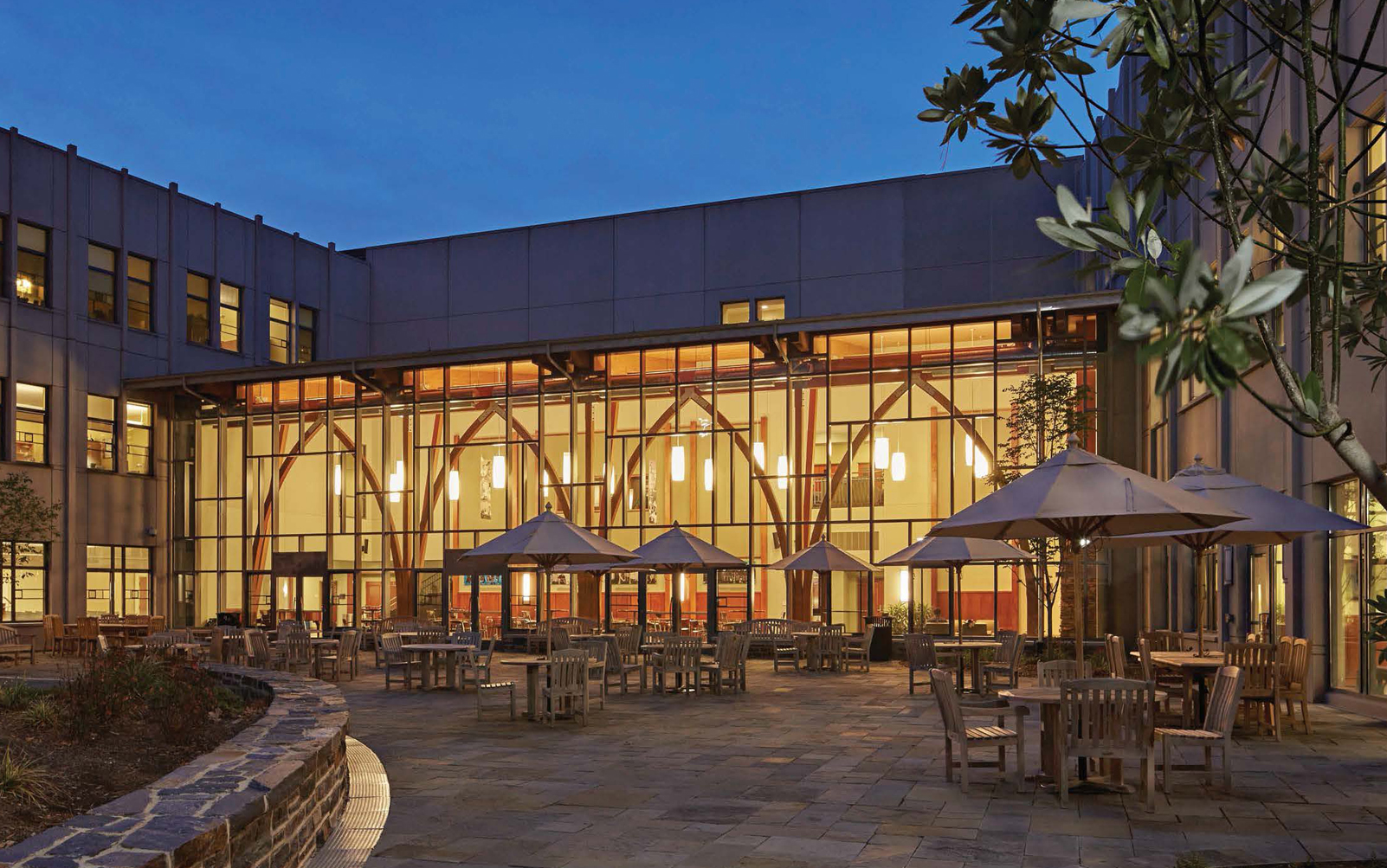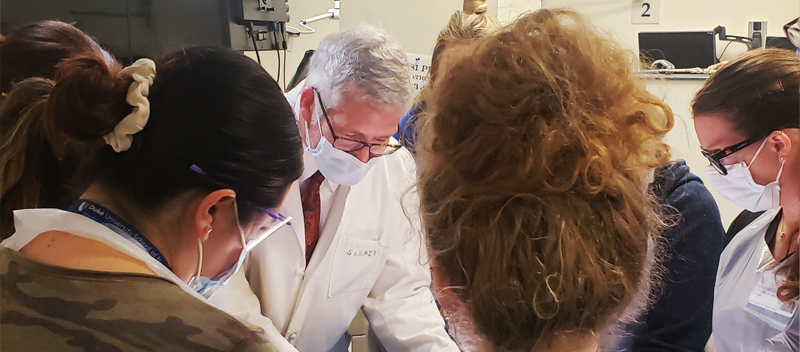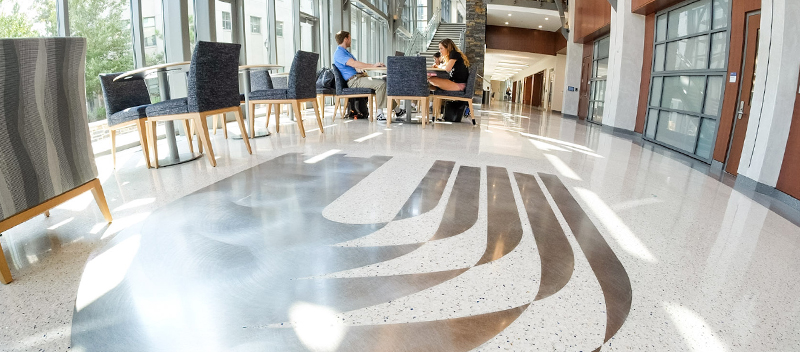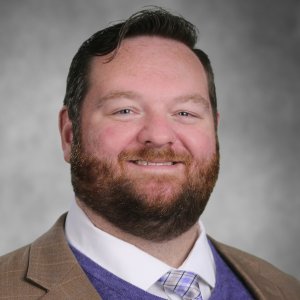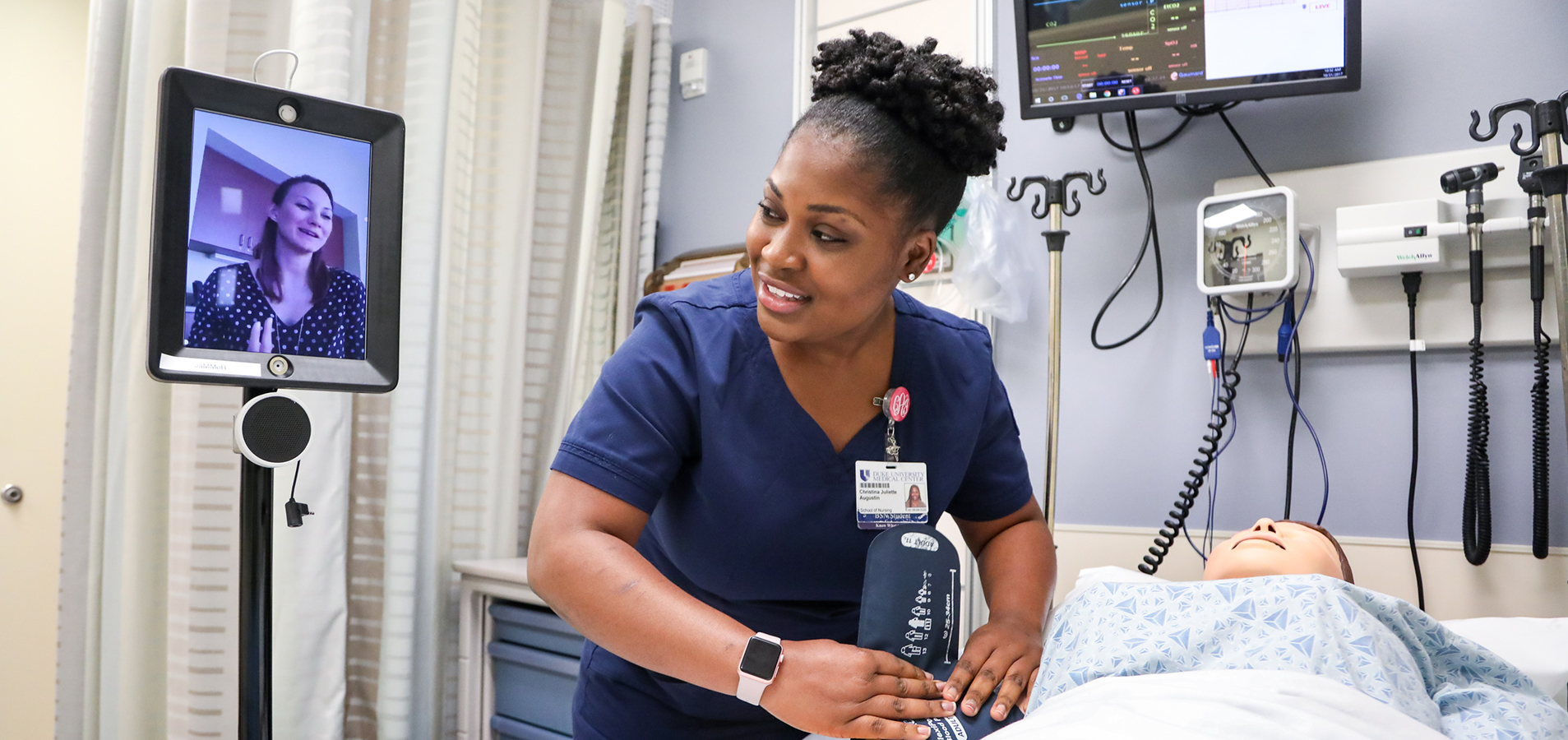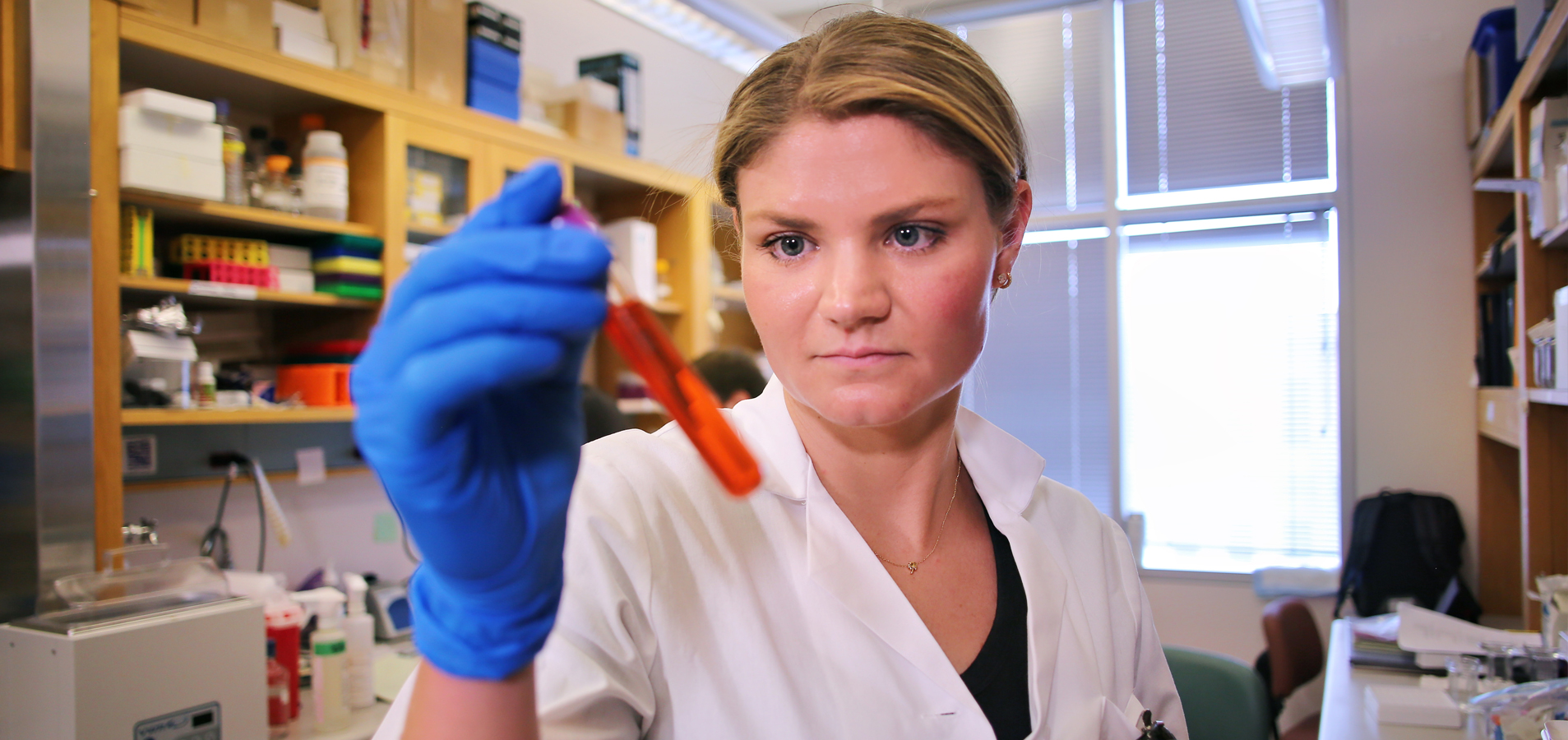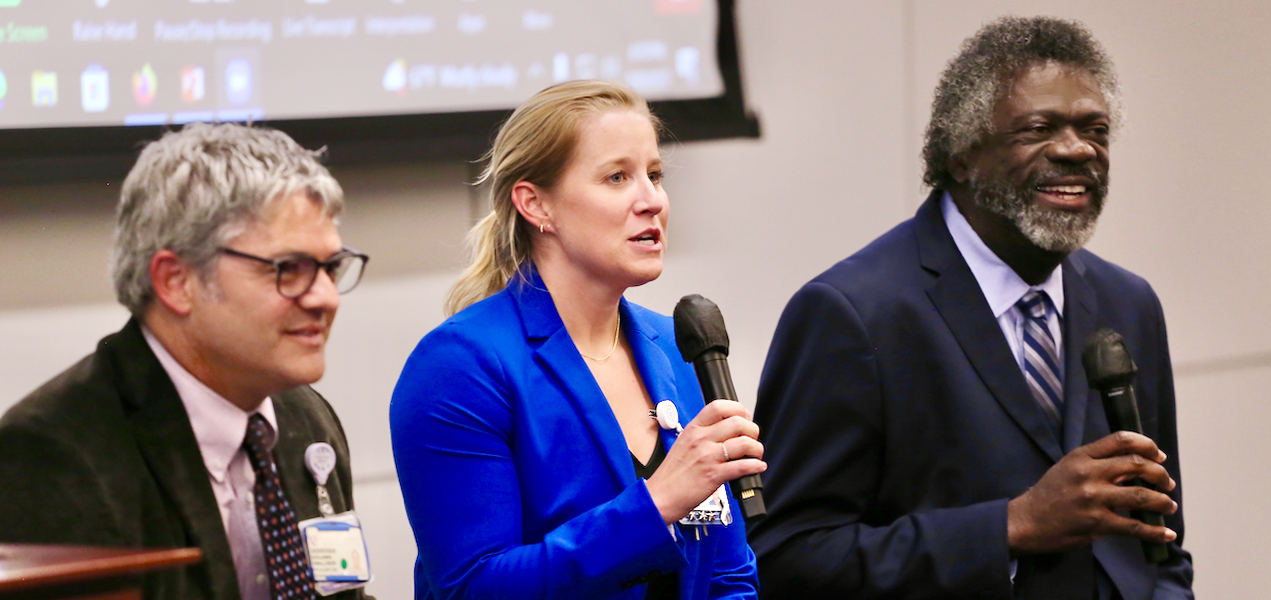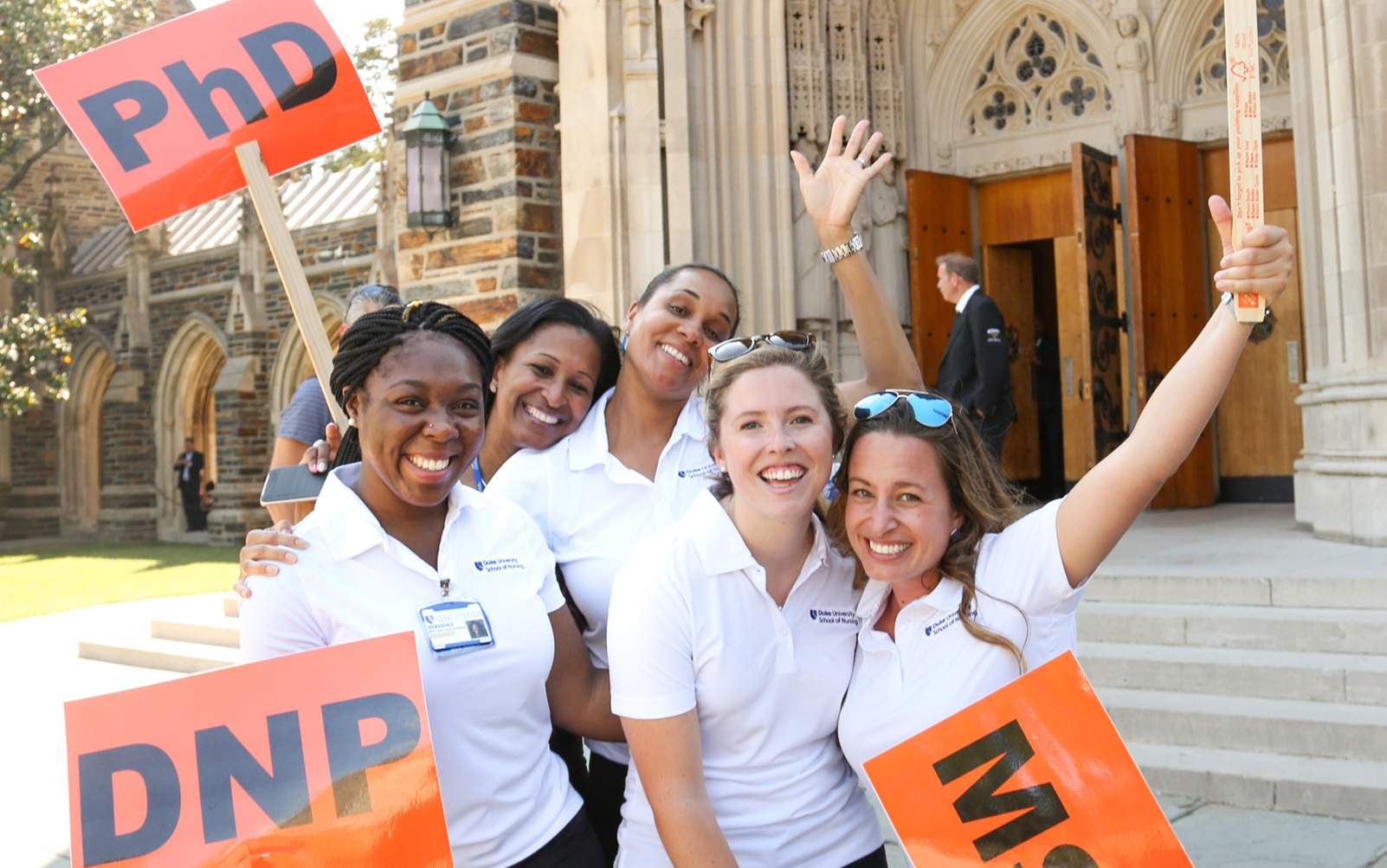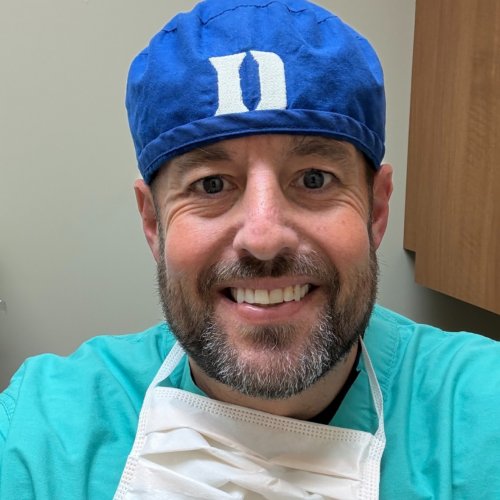Embrace and shape the future of psychiatric care with the #1 mental health nursing master’s program in the country.
Step outside traditional models of psychiatric-mental health treatment and embrace novel forms of mental health care with Duke University School of Nursing’s Psychiatric-Mental Health Nurse Practitioner MSN program.
The United States has long faced an epidemic of mental illness, which has only been exacerbated by COVID-19. Addressing this critical issue requires skilled and compassionate mental health experts. Our psychiatric-mental health nurse practitioner program prepares you to meet this demand, equipping you with the requisite knowledge, skills and attitude to safely and competently deliver mental health care across both the lifespan and continuum of care.
Through our innovative hybrid education model, we leverage both synchronous and asynchronous learning activities galvanized by high-quality practicum experiences to ensure you are ready for independent clinical practice on day one. Our program is distinguished by high access to seasoned clinicians and educators who are intrinsically motivated in your success. Each year, we establish a trauma-informed academic environment where learning is active, bidirectional and experiential. We operate from the premise that every moment is rich and sacred with learning potential. In this program, there is no wasted time or effort.
While not required, we recommend obtaining your ANCC PMH nurse generalist certification prior to applying to our psychiatric nurse practitioner program.
Psychiatric-Mental Health NP Post-Graduate Certificate
For students who already have a master’s from an ACEN- or CCNE-accredited nursing school or in another approved discipline, we also offer a Psychiatric-Mental Health Nurse Practitioner Post-Graduate Certificate. This program allows you to build on your expertise with specialized skills and knowledge, advancing your career potential.
Psychiatric-Mental Health NP Program Highlights
One out of every five U.S. adults experience mental illness each year. We’ve designed our psychiatric-mental health nurse practitioner program with the recognition that addressing such a prevalence of mental illness requires a balance of psychopharmacological and psychotherapeutic skills to make meaningful change. To prepare you for success in this challenging field, our program offers:
Distanced-based learning:
We’re committed to providing you with an accessible, relevant psychiatric-mental health learning experience. Hybrid-based courses, with both synchronous and asynchronous strategies, make it easier to balance your studies with personal and professional commitments. Additionally, on-campus intensives provide opportunities to connect with faculty and peers and engage in valuable hands-on training.
Nationwide clinical network:
In Duke University School of Nursing, distance-based learning doesn’t mean sacrificing experiential learning. With more than 2,000 clinical partnerships around the world, we’ll help you find the one closest to you that matches your academic and professional goals.
Nationally respected:
When you join our program, you’ll be part of the #1 psychiatric-mental health nurse practitioner program according to U.S. News & World Report. Thanks to our rigorous coursework and expert faculty, our mental health nursing students consistently outperform their peers, both on exams and on the job.
What Can You Do With a Psychiatric-Mental Health NP MSN?
The demand for psychiatric-mental health nursing professionals continues to rise, fueled by the need for innovative treatment methods such as telemental health, integrative care and assertive community treatment. Duke’s psychiatric-mental health NP program equips you with extensive clinical experience in these modern approaches to understanding and treating mental illnesses.
When you graduate from our psychiatric-mental health NP program, you will have developed a new lens for evaluating, treating and caring for others. You’ll also be prepared to advance health equity and social justice through recognizing and addressing systemic, unfair and avoidable differences between population segments.
Psychiatric-mental health NP graduates are prepared to pursue careers in a wide variety of settings, including:
- Emergency psychiatry
- Inpatient psychiatry
- Consultation liaison psychiatry
- Partial hospitalization
- Outpatient mental health
- Residential treatment
- Dual diagnosis and substance treatment
- Community mental health
- Assertive community treatment
- The federal health system
The U.S. Bureau of Labor Statistics (BLS) projects job opportunities for advanced practice registered nurses to grow up to 38% by 2032, making it one of the fastest-growing career fields in the country. While exact figures vary depending on location, experience, practice specialty and other factors, the BLS reports a median annual salary of $129,480 for APRNs, with the highest 10% earning more than $211,820
Program Director
Lemuel Scott
DNP, PMHNP-BC, CNE
Dr. Lem Scott is a decorated military veteran with over 20 years of experience in the defense sector. He joined DUSON as a Consulting Associate in 2022 teaching in the PMHNP program. His journey at Duke began in 2017 as an ABSN student, after which he pursued his MSN in PMHNP and graduated in 2022. He then returned to DUSON for his Doctor of Nursing Practice, completing his degree in 2024.
Learn more about Lem Scott: Scholars@Duke

